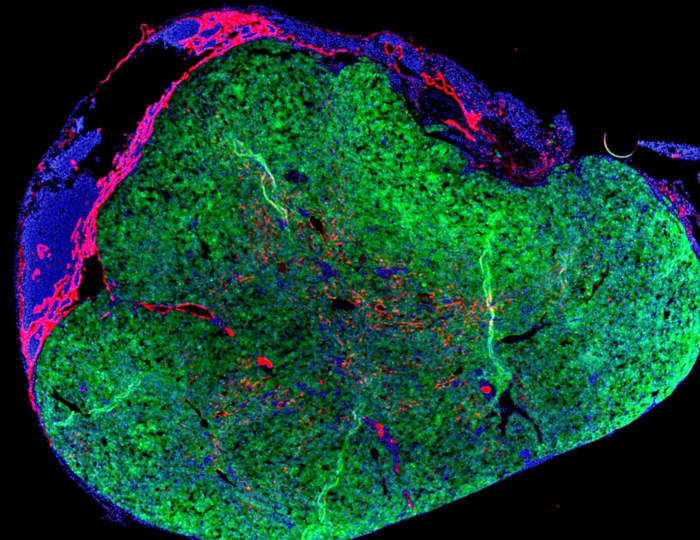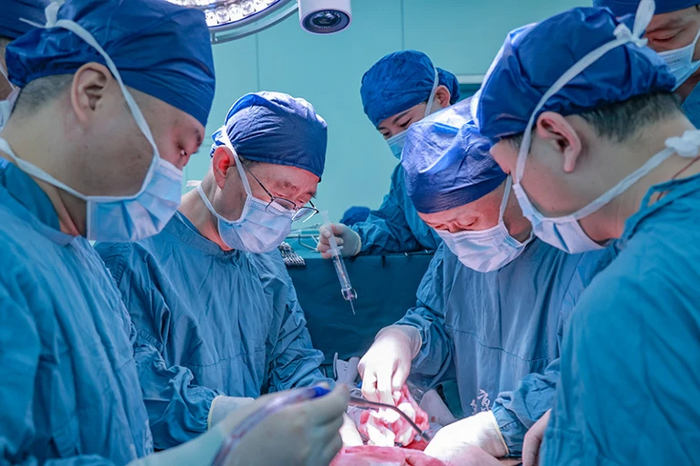A discovery giving hope for medical uses, but which also raises ethical questions.
Scientists have succeeded in reviving the blood circulation and the functioning for a few hours of body cells of pigs who died shortly before, according to a study carried out by researchers from Yale University.
In 2018, this team of researchers based in the United States stunned the scientific community by successfully restoring cell function in the brains of pigs a few hours after their decapitation.
In their latest research, published Wednesday in the journal Nature, these same scientists sought to extend this technique to the entire body of the animal.
They caused heart attacks in anesthetized pigs, which stopped blood flow and deprived their cells of oxygen – without oxygen, mammalian cells die.
Functional cells for six hours
After an hour, they injected the dead bodies with a liquid containing the pigs' blood (taken from their living) and a synthetic form of hemoglobin - the protein that carries oxygen in red blood cells.
As well as drugs that protect cells and prevent the formation of blood clots.
Blood began to flow again and many cells started functioning again, including in vital organs like the heart, liver and kidneys, for the next six hours.
“These cells were working hours later when they shouldn't have been.
This shows that the disappearance of cells can be stopped,” said Nenad Sestan, lead author of the study and researcher at Yale University, during a press briefing.
A technique to “save organs”
Under a microscope, it was difficult to differentiate a normal, healthy organ from a post-mortem treated organ, added study co-author David Andrijevic, also from Yale.
The team hopes that this technique, dubbed OrganEx, can be used to "save organs" by prolonging their functioning, he explained.
What potentially save the lives of people waiting for a transplant.
OrganEx could also enable new forms of surgery by giving "more medical leeway", according to Anders Sandberg of the University of Oxford.
But this technique raises a number of questions, medical, ethical, even philosophical.
It could "increase the risk that resuscitated people will then be unable to recover from a state of life support," warned Brendan Parent, a bioethicist at New York University's Grossman School of Medicine, in a commentary published in parallel by nature.
For Sam Parnia, from the department of medicine at the same university, this "really remarkable" study also shows that "death is a biological process that can be treated and is reversible hours later".
Towards an ethical debate
So much so that the medical definition of death may need updating, said Benjamin Curtis, a philosopher specializing in ethics at Britain's Nottingham Trent University.
"Given this study, many processes that we thought were irreversible would not be," he told AFP.
“And, according to the current medical definition of death, a person might not be truly dead for hours,” with some processes continuing for a time beyond the cessation of bodily functions.
This discovery could also spark a debate on the ethics of such procedures.
Especially since almost all the pigs made powerful movements with their head and neck during the experiment, according to the account of Stephen Latham, one of the authors of the study.
"It was quite surprising to the people in the room," he told reporters.
The origin of these movements remains unknown, but he assured that at no time had electrical activity been recorded in the animals' brains, thus excluding a recovery of consciousness.
These head movements are nevertheless "a major concern", said Benjamin Curtis, because recent research in neuroscience has suggested that "conscious experience can continue even when electrical activity in the brain cannot be measured".
“Therefore, it is possible that this technique caused suffering to pigs and could cause human beings to suffer if used on them,” he added, calling for more research.






